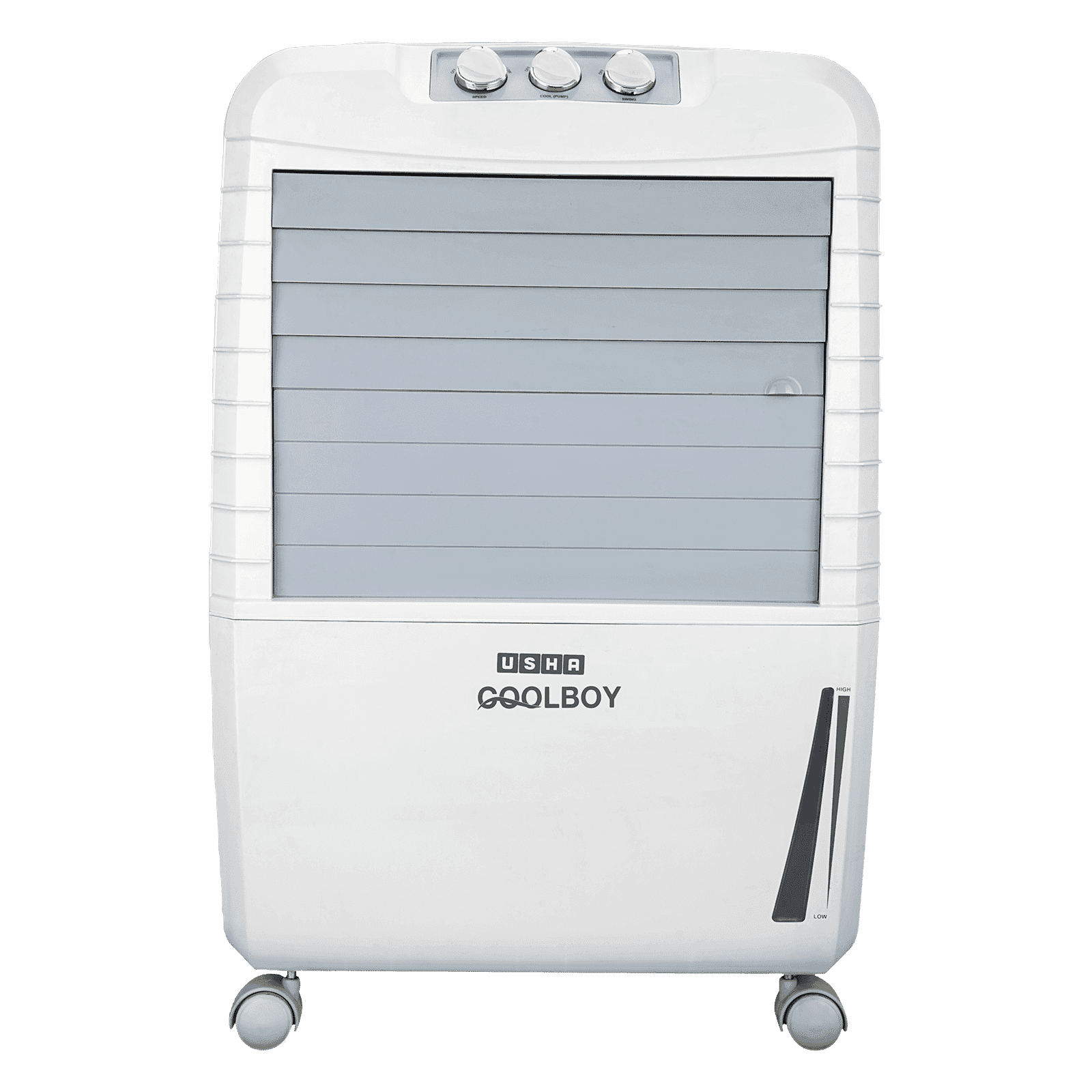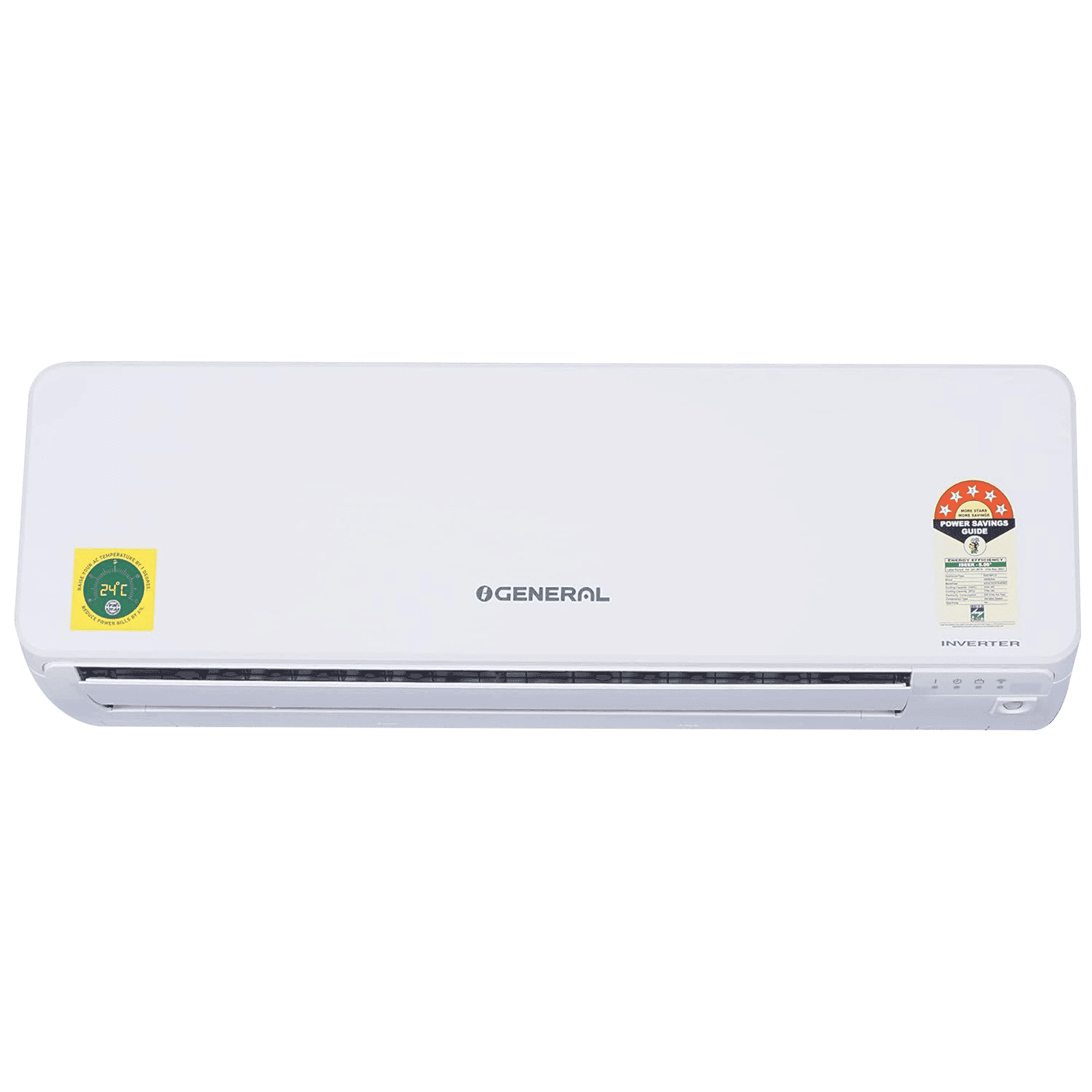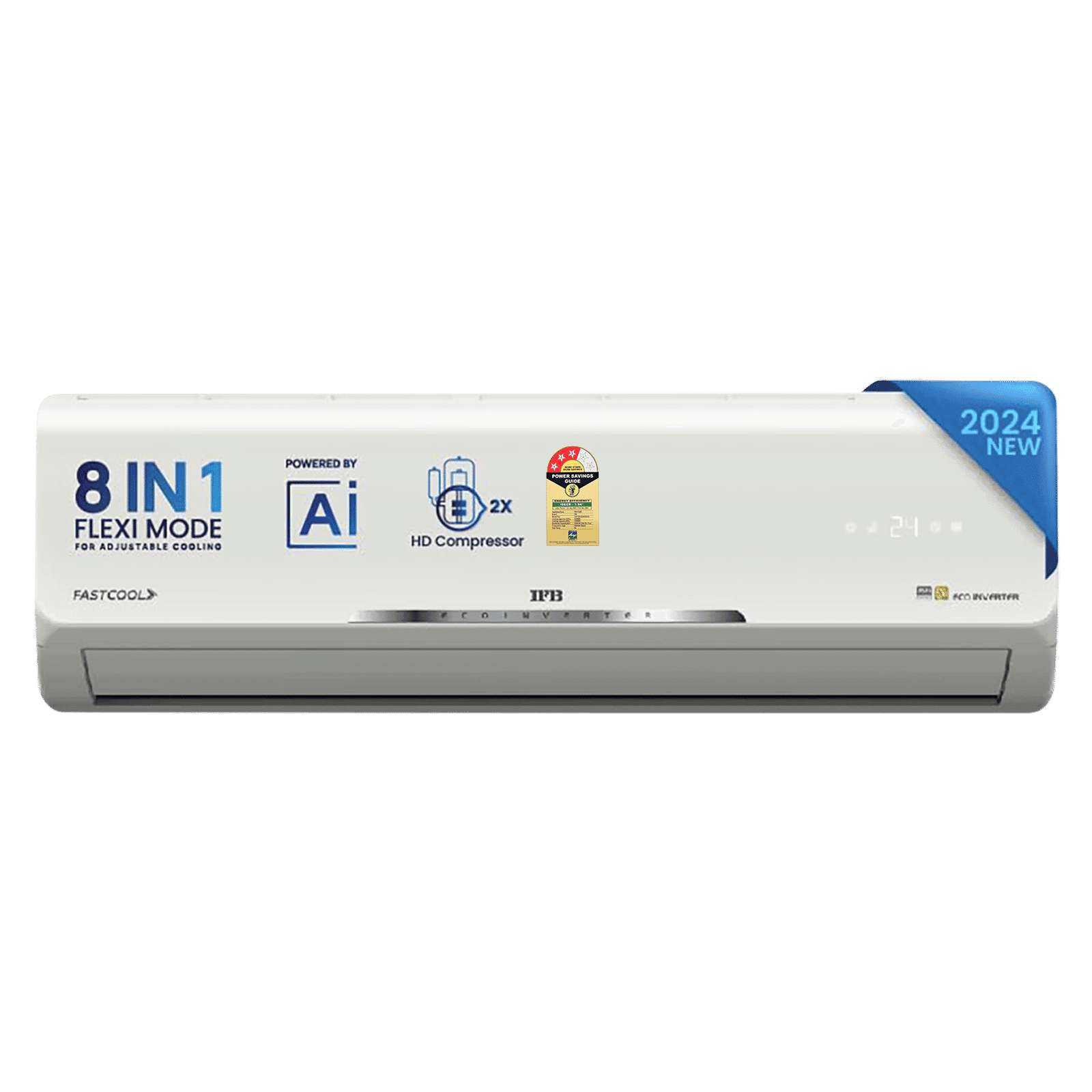
Home Appliances
•06 min read

Buy USHA COOLBOY 35 Litres Personal Air Cooler with Inverter Compatible (Thermal Overload Protection, White) online at best prices from Croma. Check product details, reviews & more. Shop now!
Understanding the power consumption of your air conditioner is essential for achieving energy efficiency and saving costs on electricity bills. With rising energy demands, knowing how to use an air conditioner power calculator can help you optimise the performance of your home appliance. This guide details easy-to-follow steps and tips that not only enhance your energy efficiency but also contribute to sustainable living.
Air conditioner power consumption refers to the amount of electricity used by your AC unit, measured primarily in kilowatt-hours (kWh). Several factors affect this consumption, including the size and type of the AC unit, usage patterns, and environmental conditions. For example, a window AC might have a different power requirement compared to a split AC, and using the AC continuously for long hours in extreme weather can lead to higher electricity bills.
AC Unit Size and Type: The power consumption largely depends on the unit's size and the technology it employs. Whether it is a portable, split, or window type, each has different cooling capacities and energy requirements.
Usage Patterns: The frequency and duration you run the air conditioner play a significant role in the overall consumption. Short bursts of usage might be more energy-efficient compared to longer continuous operations.
Environmental Conditions: High temperatures, humidity, and poor insulation cause your AC to work harder, thereby increasing power consumption.
Expert Tip: Regular maintenance and clean filters ensure that your AC runs at optimum efficiency, lowering both energy consumption and operational costs.
An air conditioner power calculator is a tool designed to help you estimate the power usage and energy cost associated with running your AC unit. By entering specific data such as the unit's specifications, room size, and daily usage hours, you can calculate the air conditioner wattage and even forecast monthly costs. This tool is invaluable for planning and budgeting, as well as for identifying potential savings on your power bill.
Using an AC power usage calculator not only aids in achieving greater air conditioner energy efficiency but also helps in planning investments in energy-efficient models. The benefits include:
Energy Efficiency: It guides you to operate your unit in a way that optimises energy usage.
Cost Savings: Efficient usage directly translates to savings on your electricity bill.
Environmental Impact: Reduced power consumption contributes to lower carbon emissions and a healthier environment.
Using the power calculator is straightforward and can be broken down into simple steps. Follow these instructions to calculate your air conditioning power consumption accurately:
Collect key details including your AC unit's specifications, the size of the room you intend to cool, and the average duration of daily usage. Having all this information at hand ensures a precise calculation.

Buy O GENERAL 1 Ton 5 Star Inverter Split AC (Copper Condenser, PM 2.5 Filter, ASGG12CGTB-B) online at best prices from Croma. Check product details, reviews & more. Shop now!
Enter the gathered information into the calculator. Most home AC power calculators have user-friendly interfaces where you can input data such as wattage and operational hours. This step is crucial to accurately calculate AC power consumption.
Once the data has been entered, the calculator will provide an estimate of the energy consumption and potential costs. Understanding these figures can help you adjust your AC settings or daily usage patterns.
Based on the result, envision ways to reduce energy consumption. Consider modifying the thermostat setting or reducing the duration of use, especially during peak energy hours. Implementing these changes can result in improved AC electricity consumption efficiency and savings.
Adopting a few best practices can markedly improve energy performance. Here are some key recommendations:
Ensure that your unit is serviced regularly. This maintenance helps to keep the filters and coils clean, ensuring optimum efficiency and preventing wastage of energy.
Setting your AC to an ideal temperature – generally around 24°C to 26°C – can greatly reduce power consumption. Avoid extreme settings which force the unit to work harder than necessary.
Consider using smart thermostats that allow better monitoring and control of your unit. These devices help in adjusting temperatures according to real-time data, further optimising energy usage.
Improving home insulation not only maintains a steady indoor climate but also reduces the cooling load on your air conditioner. This step is essential for lowering overall air conditioner energy usage.

Buy IFB 2D Series 8 in 1 Convertible 2 Ton 3 Star Inverter Split Smart AC with Wi-Fi Supported (2024 Model, Copper Condenser, CI2432D323G3) online at best prices from Croma. Check product details, reviews & more. Shop now!
For those in search of advanced solutions for energy-efficient cooling, Croma offers a broad range of air conditioners equipped with features like inverter technology, smart connectivity, and targeted energy-saving modes. With the added benefit of express delivery—orders placed before 6 PM are delivered by the end of the day—and robust after-sales support through ZipCare, Croma ensures that customers receive not only top-quality appliances but also peace of mind. Additionally, customers can earn NeuCoins on Tata Neu, which further enhances savings and provides an integrated shopping experience both online and offline.
When selecting an AC, consider not just the upfront cost, but also the long-term energy savings and ease of maintenance. These features collectively add value, ensuring that your investment remains cost-effective over time.
The accuracy of these calculators depends on the precision of the data entered and the underlying algorithms used. While they provide a good estimate, actual consumption may vary slightly.
Yes, it helps you identify inefficient usage patterns and encourages adjustments that can lead to significant energy and cost savings over time.
You typically require your AC's specifications, room size, usage hours, and the current power rate for an accurate calculation.
Regular maintenance every 6 months is recommended to keep the unit running efficiently.
Inverter ACs are known for their energy efficiency, quieter operation, and better temperature control, which lead to lowered overall power consumption.
In essence, utilising an air conditioner power calculator is a practical step towards understanding and reducing your AC's energy consumption. By following a few simple steps – gathering the necessary information, inputting the data, analysing the results, and making the necessary operational adjustments – you can achieve significant cost savings and enhance energy efficiency. Moreover, with access to advanced cooling solutions that offer innovative features and robust customer support, you can ensure your home remains comfortable and cost-effective. Embrace these strategies to optimise your air conditioning usage and enjoy the dual benefits of energy conservation and financial rewards through Tata Neu’s integrated shopping experience.